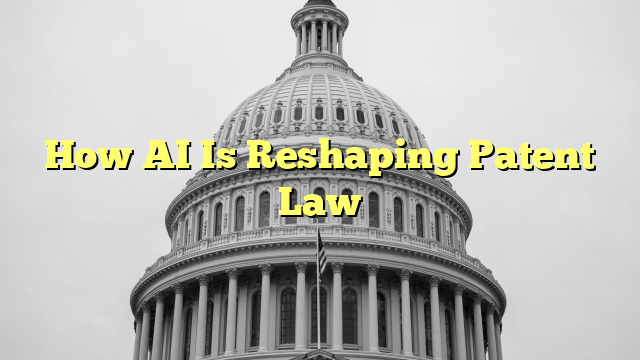Table of Contents
Introduction
Artificial Intelligence (AI) has been making significant advancements in various fields, and patent law is no exception. With the ability to process vast amounts of data and perform complex tasks, AI is reshaping the way patent law is practiced and enforced.
AI and Patent Law
AI technology is being used to improve the patent application process. AI algorithms can analyze existing patents and provide insights to patent examiners, helping them make more informed decisions. This can lead to faster and more accurate patent examinations.
Additionally, AI can assist inventors in conducting prior art searches. By analyzing a vast number of existing patents and scientific literature, AI algorithms can identify relevant prior art that may affect the patentability of an invention.
AI and Patent Infringement
AI is also playing a role in detecting patent infringement. AI algorithms can analyze large amounts of data to identify potential infringing products or technologies. This can help patent holders enforce their rights more effectively and efficiently.
However, there are challenges in using AI for patent infringement detection. AI algorithms may not always be accurate in identifying infringement, and there is a risk of false positives or false negatives. Human expertise is still necessary to validate the findings of AI algorithms.
The Role of Patent Attorneys
While AI is transforming many aspects of patent law, it is unlikely to replace patent attorneys entirely. Patent attorneys play a crucial role in understanding complex legal issues, drafting patent applications, and advocating for their clients.
However, AI can assist patent attorneys in their work. AI algorithms can help attorneys conduct prior art searches more efficiently and provide insights into patentability. This can save time and resources, allowing attorneys to focus on more strategic aspects of their work.
AI and Intellectual Property Law
AI is not only affecting patent law but also intellectual property law as a whole. The rise of AI-generated content raises questions about copyright protection and ownership. As AI becomes more capable of creating original works, it becomes necessary to reassess traditional notions of authorship and ownership.
Additionally, AI algorithms can be used to monitor and enforce intellectual property rights. For example, AI can analyze online platforms for copyright infringement or trademark violations. This can help rights holders protect their intellectual property in the digital age.

